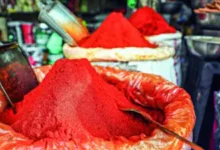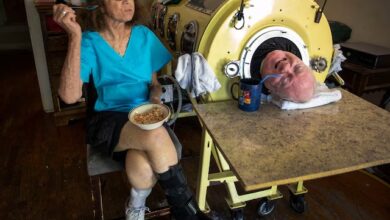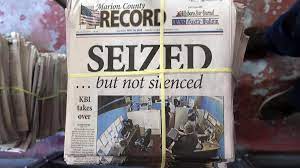Salman Rushdie’s “Knife” is unnerving in its live energy and uncompromising in its depiction of his horrific stabbing
Salman Rushdie doesn’t spend much time revisiting the day he believed could be his last in his first book since the stabbing in 2022 that sent him to the hospital and left him blind in one eye.

“I was attacked and nearly killed by a young man with a knife at a quarter to eleven on August 12, 2022, on a sunny Friday morning in upstate New York, just after I came out on stage at the amphitheater in Chautauqua to talk about the importance of keeping writers safe from harm,” Rushdie writes in the first sentence of his memoir “Knife,” which was released on Tuesday.
With a little over 200 pages, “Knife” is a short book in Rushdie’s canon—one of the most vibrant and broad of modern writers. Knife is also his first memoir since “Joseph Anton,” a 2012 book in which he examined the death edict, or fatwa, that Iran’s Ayatollah Ruhollah Khomeini issued over 20 years before due to alleged blasphemy in Rushdie’s book “The Satanic Verses.”
After being forced into hiding at first, Rushdie spent years living under continual guard. However, the danger seemed to have subsided, and he had been living his ideal life—traveling, interacting with people, and having a creative freedom—for some time, as seen by his latest books, “Quichotte” and “Victory City.”
In “Knife,” entitled “Meditations After an Attempted Murder,” Rushdie notes that he had sometimes imagined his “public assassin” showing up. However, Rushdie believed that the 2022 assault had already been resolved when it occurred, and that its timing was not only shocking but also “anachronistic,” representing the reappearance of a “murderous ghost from the past.” August 11, 2022, is referred to by him as his “last innocent evening.”
However, “Knife” is noteworthy in many respects just as much for the spirit it carries over from his earlier works as it is for the graphic and frightening accounts of the assault that both changed and did not alter his life.
Rushdie commends the physical bravery of Chautauqua Institution event moderator Henry Reese, who seized the attacker, in the book’s first chapter, calling it “pure heroism.” If optimism, tenacity, and a sense of humor can be considered heroic qualities in the aftermath of tragedy, then Rushdie’s book “Knife” is a heroic account of his journey from being found laying in his own blood to returning to the same place 13 months later and finding “wounded happiness.”
MARRIAGE AND LOVE
The narrative of “Knife” includes the fact that Rushdie’s life has included more than just a senseless act of murder throughout the last two years. He dedicates a chapter to his encounter with and marriage to poet Rachel Eliza Griffiths, who welcomed him in 2017 at a PEN America event and flashed a “dazzling smile” that Rushdie could not shake. After learning of the stabbing while she was in New York City, she quickly boarded a private jet to be with him after learning he wasn’t expected to live.
“I wasn’t dead,” wrote Rushdie. “I had surgery.”
A GOING AWAY FRIEND
While recuperating, Rushdie became aware of the serious cancer diagnosis of his close friend and colleague writer Martin Amis. Rushdie and Amis belonged to a group of talented British pals that also included Ian McEwan and Christopher Hitchens. In an apparent parting email, Rushdie commended Amis for his “generosity and kindness” in offering support after the knife assault and hailed his books “London Fields” and “Money.”
Amis passed away on May 2023.
“THE A.”
Hadi Matar is the accused attacker of Rushdie, although the author calls him “The A.,” short for “The Ass” (or “Asinine man”). He does let his imagination go wild for a remarkable 27-second conversation with the person he knows only via improbable means. Why would you even pretend to talk to his potential assassin? “I’m not seeking an admission of guilt. Rushdie says, “I do wonder how he feels, now that he has had time to think things over.”
Matar’s trial was postponed until January after a judge’s decision to provide him access to the memoir’s draft and associated documents.
THE RECOVERY
After he leaves the hospital, he will “grow stronger in body and mind” and go back to the occasions he used to attend often, such as the PEN America gala. He will be comforted by a “global avalanche” of letters of support, not just from friends but also from leaders of state, such President Joe Biden, who will release a statement praising Rushdie’s dedication to “sharing ideas without fear.”
Rushdie claims that being close to death might cause feelings of “great loneliness.” You “feel that you’re not alone, that maybe you haven’t lived and worked in vain,” when you hear words from other people.







